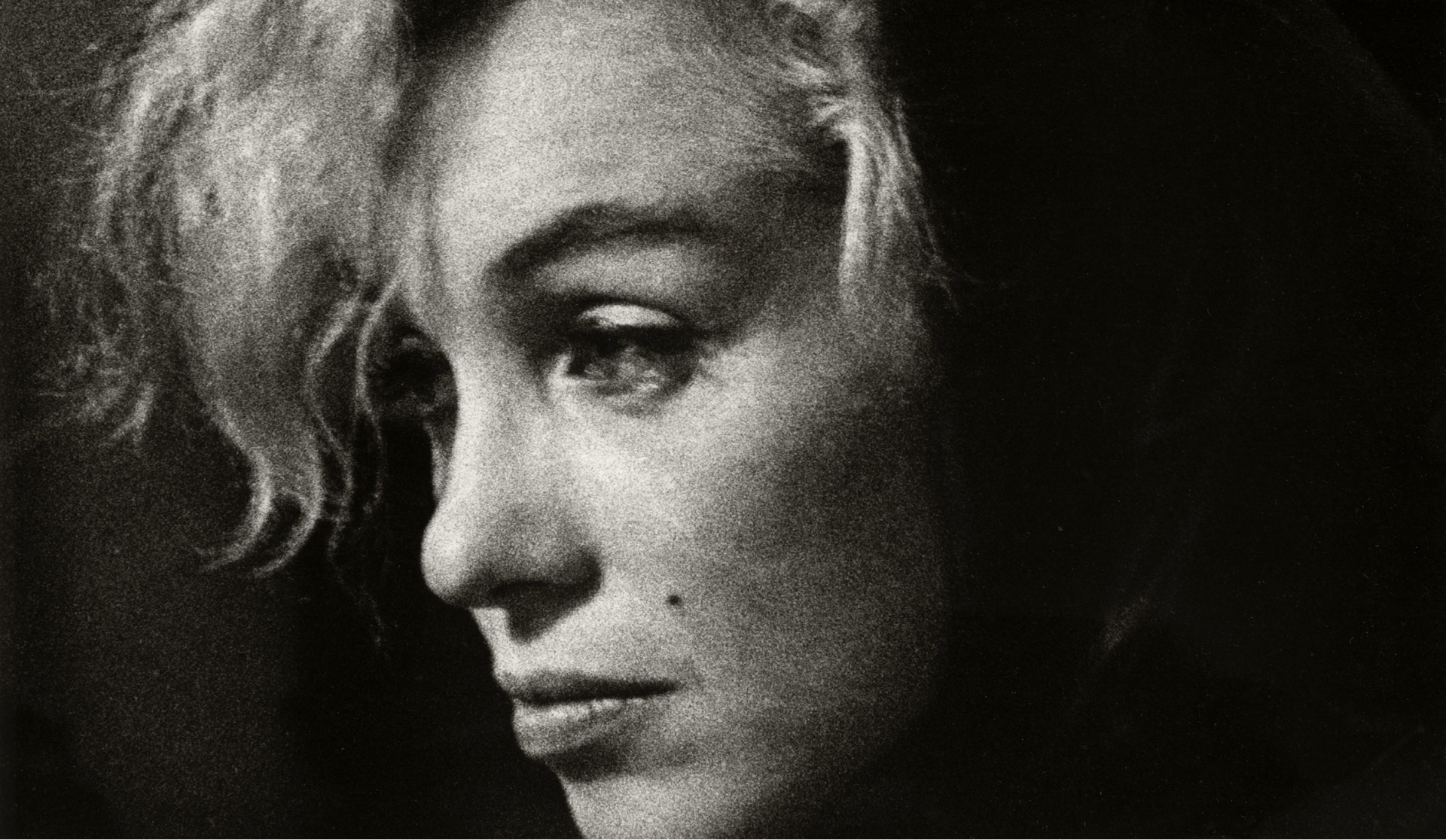
Arnold Newman Collection via Getty Images
“Is there really no sexual excitement without at least a frisson, a pleasurable ache?” asks Daphne Merkin, a writer whose decades-long career may very well center on this very question.
"Sometimes it is harder to deprive oneself of a pain than of a pleasure…”
F. Scott Fitzgerald, Tender Is the Night
I was an early starter at unhappiness. I ended up in a hospital for psychiatric evaluation when I was eight because I cried all the time. There were good reasons for that, but that is another story.
My mother used to announce to one and all that I liked to be sad, as though it were a choice, like preferring vanilla to chocolate ice-cream. And perhaps there was some truth to what she said; I understood feeling unhappy in a way I never experienced feeling happy. The former felt natural, the way water pours out of a faucet. The latter felt like it required forcing a spigot open until it finally gave way.
All my writing and teaching life I have been drawn to darkness and melancholy, choosing to explicate memoirs and novels in which the protagonist is usually disconsolate or even distraught: Jean Rhys, Marguerite Duras, Annie Ernaux, Ford Maddox Ford, Richard Yates and so on. There is something about happiness that has always seemed a bit coerced to me, like putting on a smile when someone with a camera says “cheese.” Unhappiness seems more natural, requiring nothing in the way of posing but staring into the middle distance and getting lost in dreary thoughts.
The French writer Henry de Montherlant, a novelist, essayist and dramatist who wrote in the mid-1900’s, once declared that “happiness writes white (on a white page).” The first time I read this quote I felt a quiver of excitement: I thought Montherlant had it exactly right. What is there to say about happiness that is unique except assembling a bunch of reassuring maxims and truisms—that life is more than tolerable if you make the right accommodations and that people are endearing if only you overlook their less virtuous sides—and arranging them in a pretty box tied up with shiny ribbons. Unhappiness, meanwhile, arrives in a plain brown box tied in twine, reeking of disappointment and misery, as though filled with a bunch of ominous Chinese fortune cookies, suggesting that all the effort in the world won’t change the fact that life is a vale of tears.
It is undoubtedly an unprovable bias but I have always suspected cheerful types, like female TV anchors, of arrant superficiality, of an ability to overlook all the many things that are wrong in the world in favor of betting on everything coming out okay. I envy them—who wouldn’t?—but I haven’t the foggiest notion of how I would emulate them. Has there ever been a deep thinker, from Sophocles to Schopenhauer, who skipped through his days, while nursing notions of the ethical life, or musing on the validity of a pessimistic viewpoint? Not to overlook my favorite dour poet, Philip Larkin, who recognized that happiness is precarious and that there is inspiration to be found in an absence as well as a presence, famously declaring that “deprivation is for me is what daffodils were for Wordsworth.”
When it comes to sex, unhappiness would seem to be a drag, a besetting problem. Ideally,
the erotic life is supposed to come with a momentary escape from the familiar self, with a glimpse of something transportingly blissful. What are you supposed to do with someone who doesn’t know how to get away from the quotidian even during the more ecstatic moments and when sexual engagement is over feels sad or lost instead of gratified or complete?
Bernardo Bertolucci’s film “Last Tango in Paris” is perhaps the purest expression of erotic unhappiness that I’ve seen. Marlon Brando, looking suitably anguished, walks through Paris in a well-cut camel coat that flaps around him, imparting an air of desolation, as though he were too much in a rush—towards what isn’t initially clear—to get properly dressed. When he meets Maria Schneider, young and sexy in an indifferent fashion, the two of them go at each other anonymously with an almost feral quality, as though sex were a salvation—or, perhaps a damnation. There isn’t an ounce of happiness to be found in their pairing but, then again, Bertolucci’s point seems to be that sex can be an act of desperation every bit as much as one of communion. Both characters remain themselves, no matter how intimate the eroticism, which includes a notorious scene of anal sex, including a stick of butter.
Erotic unhappiness is a non-binary affair, although we tend to associate it more with women. Just as there have always been female songwriters enamored with the man who got away—the McGarrigle sisters are probably as good as it gets at this kind of scenario—there have always been songwriters drawn to sad girls, from Cat Stevens to Jackson Browne to Eric Clapton to Bob Dylan to Leonard Cohen. One could argue that overt melancholy in a woman, especially if she is lucky enough to be beautiful, suggests that all she needs to ascend from her woebegone state is a good fucking. It may not always work but a woman with unmet longings—longings that seem like they can’t be met—is haloed by a beguiling aura of vulnerability that makes her all the more desirable. Just as songs, like “Layla”, in which the man is forced to his knees with lust for a woman brings out the unspoken entreaty that lingers behind sexual infatuation.
The singer songwriter Paul Westerberg, of The Replacements, once wrote a song in tribute to a friend of mine who was both great fun to be around and an extraordinarily needy narcissist. It was called “Sadly Beautiful” and one of the lyrics goes: “Baby needs a brand new pair of eyes,/ Cause the ones you got now see only goodbyes…”
Think of lighting up those eyes and you have the world in your hands.
+++
One could argue that great passion is just as conducive to abjection, to borrow the philosopher Julia Kristeva’s term, as it is to joy. For one, there is usually a price to be paid for passion although it need not be suicide, a la Anna Karenina. But sex, by its very nature, is not always what one dreams of, and, more importantly, comes to an end, and then one is left with the aftermath, be it dirty sheets, or getting dinner ready, or simply oneself.
I guess what I’m describing is a certain kind of wistfulness that informs erotic experience, the knowledge that it is of necessity limited and won’t erase all your anxieties, much less fly you away to some undreamed-of planet where you will lie wrapped in someone’s arms forever and never be on your own again.
The erotics of unhappiness, it seems to me, begin, in fact, with a chronic condition of intense loneliness, which some people are given to more than others, followed by a brief glimpse of coupledness and then an unending landscape of abandonment in which to wallow and wail. Abandonment itself might be said to be a form of erotic attachment, the condition of waiting to be filled up. The Greek doctor Galen (although it is only conjectured that it is him) is supposed to have written that, "Every animal is sad after coitus except the human female and the rooster." It is a provocative statement: Why men and not women? And why on earth the rooster (and how, I would add, would one know how a rooster feels after sex?)
The aspect that interests me is that even here, in a territory that human civilization has carved out as infinitely valuable, worthy of murder and suicide, there is a sub-terrain of something lachrymose. I would guess that men and women who manage to live in the here and now instead of in a perpetual state of anticipatory anxiety—You are here but for how long? You say you love me but whom else do you love? Will you come back? Will you stay with me always?—are much more likely to be receptive to the gifts erotic life has to offer.
Marilyn Monroe could be a poster child for erotic unhappiness. Her ex-husband Arthur Miller once described Monroe as the loneliest girl he had ever met, her glamour undercut by desolation and a wet dream of a body that men craved, yet she never seemed to keep her demons at bay for long. Sex didn’t do it for her, fill the holes, in a way that parental love might have. When I try and analyze the erotics of unhappiness I imagine it is probably most easily—and reductively—explained by a streak of masochism, where the man or woman can’t allow pleasure to exist without some sort of pain, be it physical or psychological—or both—hovering in the background.
I’m not sure, on the other hand, how much this kind of facile diagnosis helps explain the situation. There are few people who don’t have a strain of pathology in them, some downcast memory of the past that is often elicited by arousal. The problem seems to me to have to do more with a lack of basic trust in the other—a sense that you are site-specific rather than random and can easily be dropped—than in generic childhood dynamics.
Perhaps, finally, the erotics of unhappiness is no more than a construction, a paradigm without
content, some neat Derridean inversion. Perhaps there really is no sexual excitement without at least a frisson, a pleasurable ache. On the other hand, Robert Stoller, an American psychoanalyst who studied perversion and transsexuality avant la lettre, argued in his book Sexual Excitement that there is no lust possible without an ingredient of hostility. To me this sounds persuasive, at least as far as breathless, all-out rutting goes, but I am also someone who is easily bored by repetitive sex with the same person and is turned on by a dose of aggression. I believe Stoller was also referring to specific situations—“microdots,” he calls them—featuring humiliations or hurts from the past that emerge unconsciously during sexual engagement and have to be mastered in one way or another. The phenomenon called “make up sex” may be a way of relieving one’s tendency to sadness with the high wire act of reconciliation. In my own case, the lovers who made me happiest came equipped with an arsenal of denigration; they were ineffably drawn to me but were also drawn to remaking me, until all that was left was a broken heart, a shadow on a sunny day.
At any rate, I don’t claim to have any answers. Why do I like men who can live as well without me as with me, while other women can’t bear being anything but an obsession, someone who can’t be left alone even for short periods of time? These are difficult questions, since we are complicated multivalent beings, and when it comes to sex the linear description doesn’t seem enough of an answer. First comes love, then comes coitus, then comes happiness. If only. The poet W. H. Auden wrote that “the desires of the heart are as crooked as corkscrews.” Some of those desires must express themselves by weeping as surely as by smiling.


